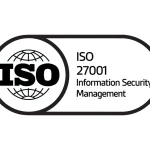Cloud Foundry has set out plans to reduce its reliance on commercial software developers whose business models monetise their work.
Instead, Cloud Foundry Foundation executive director Chip Childers wants to encourage more contributions from developers in the wider open source community and those in end-user organisations. For Childers, these contributions should be treated in the same way as the contributions from developers employed by the major software houses.
As such, Cloud Foundry Foundation announced the formation of a Technical Oversight Committee (TOC), which is significantly reorganising how the Cloud Foundry open source community operates. The five-member committee has two representatives from SAP, two from VMware but, significantly, the chair is Lee Porte, PaaS (platform-as-a-service) tech lead at Gov.UK, who will also have a seat on the Cloud Foundry Foundation’s governing board.
The TOC replaces Cloud Foundry’s Project Management Committee (PMC) and will be responsible for the oversight, direction and delivery of technical aspects of Cloud Foundry projects and working groups.
“Our focus as a community is to improve transparency, openness and make the open source community much more welcoming,” said Childers, adding that the overall goal is to be more welcoming of “casual contribution styles” to level the playing field in terms of open source code contributions.
“Many of the full-time developers who work on projects are funded by major vendors,” he said. “We want to ensure people who are not full-time developers can contribute.”
While Pivotal dominated between 60% and 75% of Cloud Foundry code contributions, Childers said this is now around 50%, which gives the Cloud Foundry Foundation “an appropriate balancing of responsibility”.
He added: “We are very close to, if not achieving, the balance between those employers who pay developers and those who commercialise the platform.”
For end-user organisations that directly use open source software, Childers said: “We want to make sure there is plenty of space for them to participate.” In the past 12 months, 66 developers from end-user organisations were involved in Cloud Foundry work, he said.
Childers recognised that for an end-user organisation, the business diver to encourage in-house developers to contribute to an open source project is less clear-cut that in a software business that is commercialising the Cloud Foundry platform. “If you are SAP, you are getting much more revenue [from the project] and this is reflected in the R&D,” he said.
As such, the investment in a project has a direct return on investment, he said, and an end-user organisation typically achieves greater efficiencies from open source, which is harder to measure.
Childers added: “Do you spend the time your developers have on software that has a direct impact on your customers, or do you want them to spend time on open source projects that the community can make use of? The trade-off is whether you believe it is in the best economic interest overall.
“Our community needs to embrace those engineers who go down that route [of contributing code], and find a low friction way to flow in their code contributions.”














